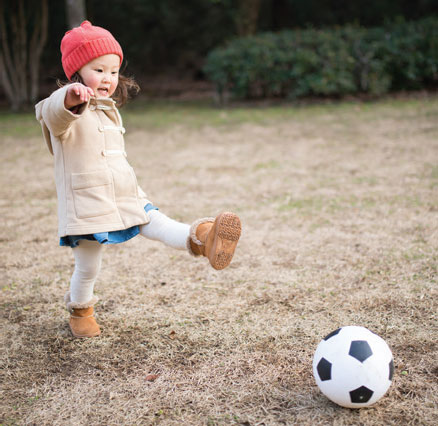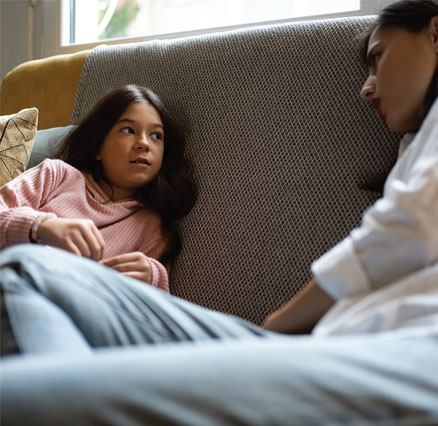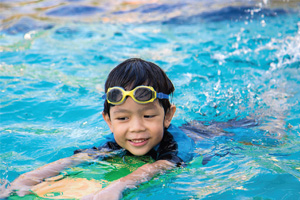Winter 2023
Healthy Coping Skills for the New Year
 The new year is a great time to recommit to healthy habits — and try some new ones! This year, in addition to focusing on physical health, your family might want to set some goals to boost your mental and emotional wellbeing. Here are some ideas to get you started.
The new year is a great time to recommit to healthy habits — and try some new ones! This year, in addition to focusing on physical health, your family might want to set some goals to boost your mental and emotional wellbeing. Here are some ideas to get you started.
Acknowledge and name feelings. By identifying the emotions we’re experiencing, we can take a step back and examine what’s going on inside. Search online for ‘feelings wheels’ and ‘emotion charts.’ These colorful, printable tools can help us unpack and understand complex feelings.
Validate feelings for one another. Validation is a tool that shows your child (or anyone) that you understand and accept their thoughts and feelings. It requires sitting quietly and listening intently — without expressing any judgment or trying to ‘fix’ them.
Learn relaxation techniques. Explore some simple breathing exercises and meditation techniques designed to calm and center you. Start by trying a few free, highly rated apps.
Replace negative self-talk with affirmations. Pay attention to the messages running through your mind. Sometimes, we need to override them with positive self-talk — encouraging, empowering messages of self-acceptance.
Know your emotional triggers. By paying careful attention and learning exactly what can set us off, we can recognize triggering events when they happen, and not automatically react.
Let go of perfection. Perfect really is the enemy of good. Striving for perfection can paralyze us and make it impossible to complete a task or reach a goal. It can also alienate others. Commit to realistic expectations and embrace being fully human!
Break big tasks down into smaller tasks. Especially when you feel overwhelmed, remember that consistent ‘baby steps’ can get you to your goal surprisingly quickly.
Attend to your physical health. Building strong coping skills requires investing in your physical health. Be sure you’re eating nutritious foods, moving your body and getting enough sleep.
Remember what’s helped you cope in the past. When you’re going through a tough time, think back to recall what’s been helpful (and not helpful!) when you’ve been in similar situations.
And of course, developing healthy coping skills requires some help. We all need to build a community of supporters we can count on. Faithful friends, trusted family members, wise counselors and expert healthcare professionals can all help us on this journey.
Visit our Mental Health Resource Hub to learn more.
Keep Moving, Rain or Shine!
 Does your family make time for active play every day? Even when it’s cold or wet, dress for the weather and head outside. Enjoy fresh air fun plus active time inside, whether it’s at home or a community center.
Does your family make time for active play every day? Even when it’s cold or wet, dress for the weather and head outside. Enjoy fresh air fun plus active time inside, whether it’s at home or a community center.
Preschoolers need plenty of active play: aim for at least two hours each day. Ideally, preschoolers should play for about 15 minutes every hour. Provide active toys like balls, wagons, tricycles and balance bikes.
Grade-school age kids and teens need to be active at least 60 minutes each day, even if it’s broken into short segments of 10 or 15 minutes. Go for a variety of age-appropriate aerobic and muscle-strengthening activities. Join the action whenever you can!
Learn more about exercise and children.
What is RSV?
 Respiratory syncytial virus (RSV) infects almost all children at least once before they are 2 years old. For most children it’s like a cold with a runny nose, sore throat and/or fever. But some children with RSV develop bronchiolitis or pneumonia and end up needing care in a hospital due to breathing problems.
Respiratory syncytial virus (RSV) infects almost all children at least once before they are 2 years old. For most children it’s like a cold with a runny nose, sore throat and/or fever. But some children with RSV develop bronchiolitis or pneumonia and end up needing care in a hospital due to breathing problems.
Children who are more likely to develop severe RSV infections include premature babies under 6 months of age, children with chronic lung or heart disease, and those with immune deficiencies.
RSV is most common between November and April, and it’s very contagious. To prevent RSV, avoid crowds and close contact with others who have cold symptoms. Be sure everyone in your family washes their hands frequently. Cover your mouth and nose when sneezing or coughing. Throw away used tissues right away, then wash your hands.
If your baby or child has more serious RSV symptoms such as dehydration, a change in breathing or difficulty breathing, see your healthcare provider right away. Learn more about RSV.
School Lockdown Drills Can Cause Anxiety
 For most parents and caregivers, school safety concerns are different now from when they were in school. Today, lockdown drills are necessary to help keep kids safe at school. But these drills can spark fear and worry for kids and teens. It’s important to support your child through any anxiety they have related to lockdown drills and school violence. This is best done with reassuring conversations.
For most parents and caregivers, school safety concerns are different now from when they were in school. Today, lockdown drills are necessary to help keep kids safe at school. But these drills can spark fear and worry for kids and teens. It’s important to support your child through any anxiety they have related to lockdown drills and school violence. This is best done with reassuring conversations.
Be sure your child knows that lockdown drills will happen during the school year, because their teachers and staff want to make the school a safe place. Drills ensure that children know exactly what to do to help them stay safe in an emergency. Explain that these drills are safety habits — like wearing a seatbelt, a life jacket or a bike helmet. If your child seems worried, discuss some strategies that will help them feel more relaxed during the next drill.
Some schools notify parents and caregivers via text and/or email that a drill is planned or happening. Whether you learn about a drill from school or your child mentions it, ask if they’d like to talk about the experience, then follow their lead. Don’t push them to provide details if they don’t want to. If they share that they felt scared or nervous, be empathetic and focus on some positive coping skills. Reinforce the idea that the drill helps keep them safe by letting them practice what to do.
If your child has a tough time with lockdown drills, you can also reach out to the school staff. They’re apt to have some specific, helpful ideas.
Learn more with these tips from the National Association of School Psychologists.
When to Start Swim Lessons
 Every family must make learning to swim a top priority. It’s a crucial life skill that can help prevent drowning — a leading cause of death for children. The American Academy of Pediatrics recommends starting swim lessons as early as age 1 if your child is physically and emotionally ready. By age 4, most children are ready to learn basic water survival skills: floating, treading water and getting to an exit point.
Every family must make learning to swim a top priority. It’s a crucial life skill that can help prevent drowning — a leading cause of death for children. The American Academy of Pediatrics recommends starting swim lessons as early as age 1 if your child is physically and emotionally ready. By age 4, most children are ready to learn basic water survival skills: floating, treading water and getting to an exit point.
Winter can be an ideal time for swim lessons in a well-heated indoor pool. Choose a program with experienced, qualified instructors. Remember that while lessons are a layer of protection against drowning, they don’t make kids ‘drown-proof.’ Always follow safety protocols in and around water.
Treating a Jammed Finger
 A jammed finger is a common sports injury. It happens when the end of a straightened finger is hit with force. Most often, this is from a ball. It can also happen when sliding into a base or when reaching out to break a fall.
A jammed finger is a common sports injury. It happens when the end of a straightened finger is hit with force. Most often, this is from a ball. It can also happen when sliding into a base or when reaching out to break a fall.
A jammed finger can be very painful, and the joint usually swells. To treat this injury yourself, ice the finger with a cold pack or in ice water for 15 minutes and elevate it to reduce swelling. You can also ‘buddy tape’ it to an adjacent finger to keep it straight and protected.
Seek medical care if the finger can’t be straightened or if it appears deformed — or if the swelling and pain worsen. Also seek care if it becomes numb, turns white or is less pink than usual.
Learn about other types of finger injuries.
Iron Supplements for Babies
 To be healthy and strong, children need a variety of vitamins and minerals. Iron is a key mineral that does a lot, including helping red blood cells carry oxygen throughout the body. Iron also supports a child’s ability to learn.
To be healthy and strong, children need a variety of vitamins and minerals. Iron is a key mineral that does a lot, including helping red blood cells carry oxygen throughout the body. Iron also supports a child’s ability to learn.
Breastfed babies should be given an iron supplement starting at 4 months. They can stop taking a supplement when they start eating foods that contain iron, such as iron-fortified baby cereal. Formula-fed babies almost always get enough iron from a quality formula. Premature babies — no matter whether they are breastfed or formula-fed — often need extra iron. Iron supplements for babies come in liquid-drop form and are easy to give.
Learn more about iron. If you have questions, ask your baby’s doctor.
Quick Tip
It’s not too late to get the flu vaccine. Flu season usually lasts until April so there’s still time to get protected. Learn more.


